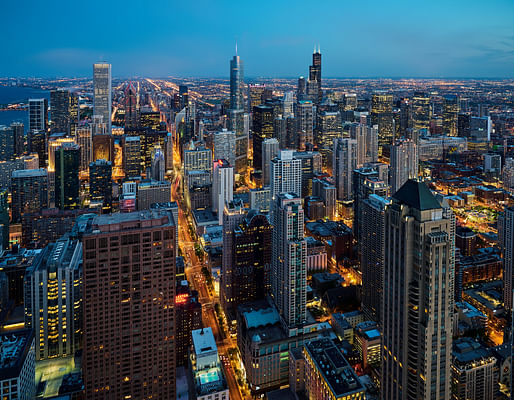

Chicago Mayor Lori Lightfoot and the Chicago Department of Housing (DOH) Commissioner Marisa Novara announced on December 6th more than $1 billion in affordable housing through the Chicago Recovery Plan, as part of Lightfoot’s 2022 budget. This is the largest investment in affordable housing in Chicago’s history.
Aiming to create and preserve 2,428 affordable housing units spread across 24 developments, the DOH is more than doubling the 11 developments awarded and 1,083 units built over the $398 million granted over the 2019 Low-Income Housing Tax Credit (LIHTC) round.
The 24 LIHTC developments were selected through a racial equity lens. As detailed in the City of Chicago’s press release, the DOH conducted the country’s first Racial Equity Impact Assessment of the LIHTC program through a process that examines data by race, centering on the experiences of impacted populations. As a result, the city has ensured that BIPOC (Black, Indigenous, People of Color) developers will benefit from LIHTC. There will also be a focus on access to housing for particularly marginalized groups and increased accessibility to transit and developments that improve wealth-building opportunities for residents.
“Low-Income Housing Tax Credits are the largest funding source we have for the creation of affordable rental housing, a process we have made more equitable through our Racial Equity Impact Assessment,” said Commissioner Novara. “This year, made possible in part by the Chicago Recovery Plan, we also have the opportunity to more than double our impact with the largest tax credit investment in this City’s history.”
The DOH received 51 applications seeking funding, and the selected projects are an “innovative mix of new construction, preservation, and rehabilitation including Chicago’s first development in partnership with and for Indigenous populations, and an adaptive reuse of a former Chicago Public School for re-entry housing.”
As laid out by the city, 67% of the developments will be located in Chicago’s South and West Sides. 10 of the 24 developments are BIPOC-led, and all 24 will have BIPOC participation. 75% of the projects are Equitable Transit-Oriented Developments (eTOD). In addition, a total of 684 units will be two-, three-, and four-bedroom units, and 394 units will be affordable to households earning 30% of the area median income. Five of the 24 developments will be Chicago Housing Authority (CHA) projects, with 566 total units, including affordable ones. Finally, eight of the developments are located within INVEST South/West neighborhoods.
"Investing in affordable housing is a critical component to creating an equitable, strong city," said Lightfoot. "I am thrilled that we've been able to expand our investments in affordable housing to move us closer towards that vision for our city. I look forward to seeing these developments come to life and provide more affordable, safe housing options on our South and West Sides."
Mayor Lightfoot also announced that the city is acquiring more than six acres of vacant land in the Pilsen neighborhood to be used for affordable housing. A minimum of 280 affordable housing units are planned, with the project expected to generate $100 million in economic activity. This move follows two anti-displacement measures passed by Chicago City Council aimed to prevent long-time residents from being pushed out of their communities.
The proposals will now undergo project underwriting, design review, zoning approvals, and City Council approvals. The closing process is expected to take between eight to eighteen months. A complete list of the 51 proposals received for the 2021 funding round can be seen here.
No Comments
Block this user
Are you sure you want to block this user and hide all related comments throughout the site?
Archinect
This is your first comment on Archinect. Your comment will be visible once approved.